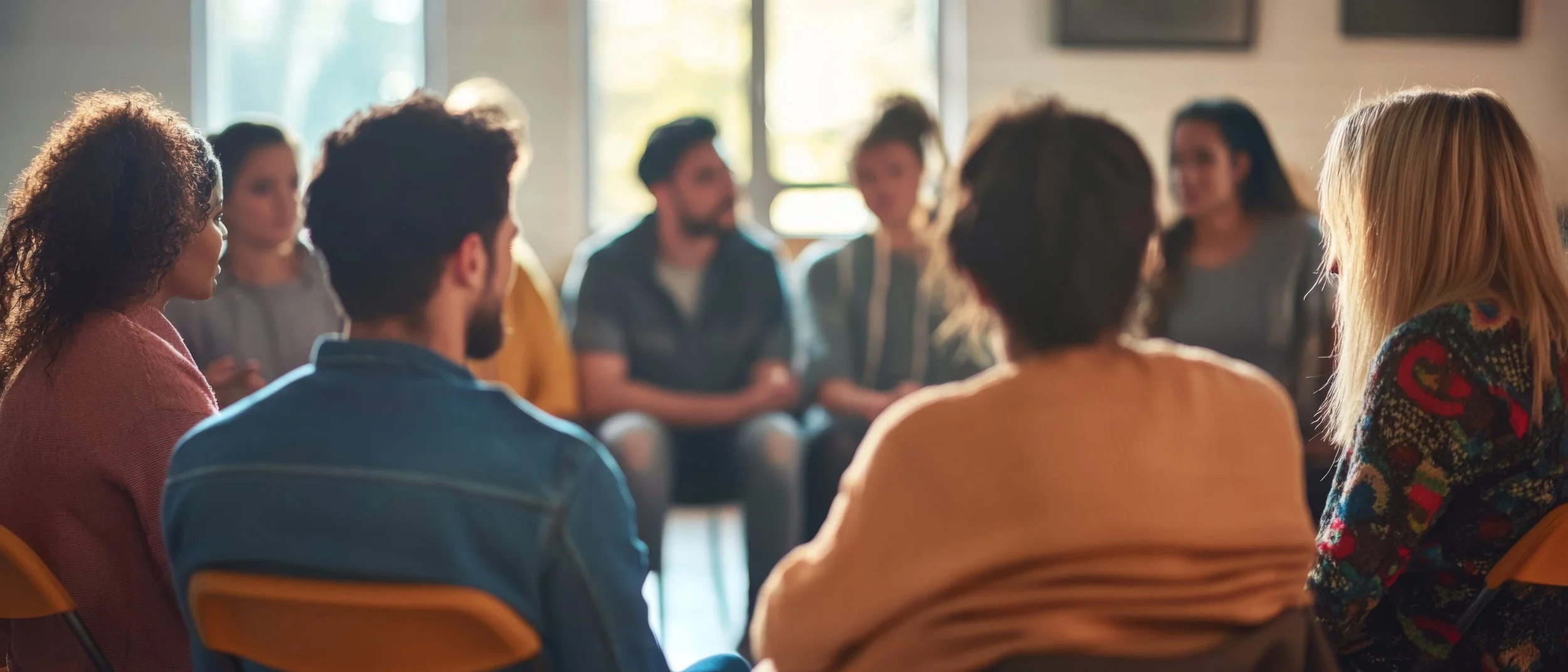
Transform your organization's capacity to support young people, through expert-led training
I combine my extensive clinical and teaching experience in gender, sexual orientation and sexual health, to design and deliver bespoke training workshops across the NHS, local authorities, universities, third sector and private sector organisations.
All of my workshops are co-created with people with lived experience, and they can also be co-facilitated with trans or non-binary young adults, to provide a rich combination of clinical and lived experience.
Training workshops facilitated by Dr Lorna Hobbs
The broad aims of the workshops are to enhance the capacity of professionals, across various sectors, to provide sensitive and effective support to young people (and adults) around the areas of gender, sexual orientation, adolescent mental health/wellbeing, sex and relationships, sexual health/wellbeing, and to promote inclusivity and understanding within services. Below are example workshops, but workshops can be combined and tailored to suit your particular training needs.
-
This day long interactive introductory workshop covers a wide range of topics including language and terminology, enhancing understanding of the impact of prejudice and discrimination on LGBTQ+ people’s health and mental health, exploring intersectionality, developing self-awareness of our own assumptions, beliefs & biases and how they can impact on our ability to work sensitively and effectively with LGBTQ+ young people, developing practical skills and increasing understanding of best practice in this area.
-
This short introductory session aims to increase participants’ knowledge and understanding of the lived experience of people with a range of different gender and sexual identities; the appropriate terms and language to work sensitively and effectively with this group; and how to foster a welcoming, supportive and safe environment for LGBTQ+ individuals.
-
Members of the LGBTQ+ community experience mental and physical health inequities throughout the lifespan, and have poorer experiences when accessing health services than their heterosexual and cisgender peers.
This session:
- Outlines proximal and distal minority stress factors for LGBTQ+ people
- Examines their impact on health and mental health
- Builds skills for non-specialists in how to respond, mitigate negative effects, and promote wellbeing and resilience in LGBTQ+ young people.
-
Covering areas such as:
- Understanding why it’s important to be able to talk openly about sex and sexuality in different professional contexts (and beyond)
- Developing self-awareness of factors that impact on our ability to talk openly about sex and sexuality
- Learn information and practical skills to increase skills and confidence to talk about sex and sexuality
- Enhance understanding of sex and the law, and safeguarding
-
This sex and relationships session covers the emotional, relational, psychological, and cultural dimensions of sexual health.
The session can be tailored according to young people or adults.
The session aims to:
- Explore relationship health and intimacy, including relationship diversity
- Consider cultural and structural factors that impact sex and relationship health
- Consider sex across the lifespan
- Understand sexual difficulties and when to act
- Consider sexual pleasure as a health-promoting factor and an important part of person-centred care
- Explore personal beliefs, values and assumptions about sex and relationships
- Build communication skills in asking questions about, and discussing sex and relationships effectively and sensitively
- Explore assessment of risk and safeguarding
-
This session explores the intersections of gender, sexuality, and other aspects of identity in healthcare delivery:
- Age, Ability, Class, Culture, Education, Ethnicity, Race, Religion, Spirituality
- Examines how the intersections of these different identities can create unique forms of discrimination for some
- Provides skill building activities to help healthcare professionals respond and mitigate negative effects at an individual and systemic level
-
Learning about pornography and its impact on health/wellbeing is important because it helps health professionals offer informed, non-judgemental, and effective care in an area that affects people’s wellbeing, relationships and sexual health.
This session aims to:
- Explore how different types of pornography can impact negatively on health and relationships
- Build confidence discussing pornography appropriately with young people
- Develop at non-judgemental, evidence-informed approach
- Understand how to assess and respond to distress relating to pornography
- Understand and apply a sex positive approach, which respects and celebrates human sexual diversity and expression, without shame or stigma
-
Focussing on expressions of masculine identity that are healthy, respectful, emotionally aware and inclusive. Key areas include:
Exploring young people’s understanding and experience of misogyny
Developing emotional literacy and expression
Promoting strength through care and compassion
Increasing understanding of healthy relationships and respect
Choosing authenticity over conformity
Developing courage to challenge harmful norms
-
Covering areas such as:
- Cultural competence and humility: acknowledging biases and learning from LGBTQ+ clients, service users and patients
- Trauma-informed care: recognizing how past discrimination affects patient trust in healthcare
- Inclusive communication
- Creating safe spaces
“Lorna delivers workshops on Gender and Sexuality Awareness for social care practitioners and foster carers in Islington. She offers sessions that meet the differing group needs and creates a brave space where it is acceptable to people to ‘not know’ and to learn together about how to understand and support LGBTQ+ young people in their practice”.
— Mary Day, Workforce Development Manager, Islington Council.
Schedule a free consultation to discuss your organisation's specific needs.
-
We offer flexible timing to suit your needs. We most often deliver half-day (3-4 hours) and full-day (6-8 hours) sessions, but custom durations can be arranged per your requirements.
-
Our workshops are most effective with 15-30 participants, allowing for meaningful discussion and interaction. But we can accommodate much larger groups, multi-session workshops, and modified formats to ensure quality learning experiences.
-
Both formats deliver the same high-quality content and learning outcomes. Online sessions include interactive elements and breakout rooms, while in-person training offers more immediate face-to-face interaction. Both can be co-facilitated with young adults with lived experience.
-
Yes. We tailor all workshops to your organization's specific needs, sector, and current knowledge level. During our initial consultation, we'll discuss your objectives and design a program that addresses your unique needs and objectives.
-
All sessions are led by Dr. Hobbs, a clinical psychologist with 17+ years of clinical and research experience, alongside co-facilitators with relevant lived experience. This combination ensures both professional expertise and authentic perspectives.


